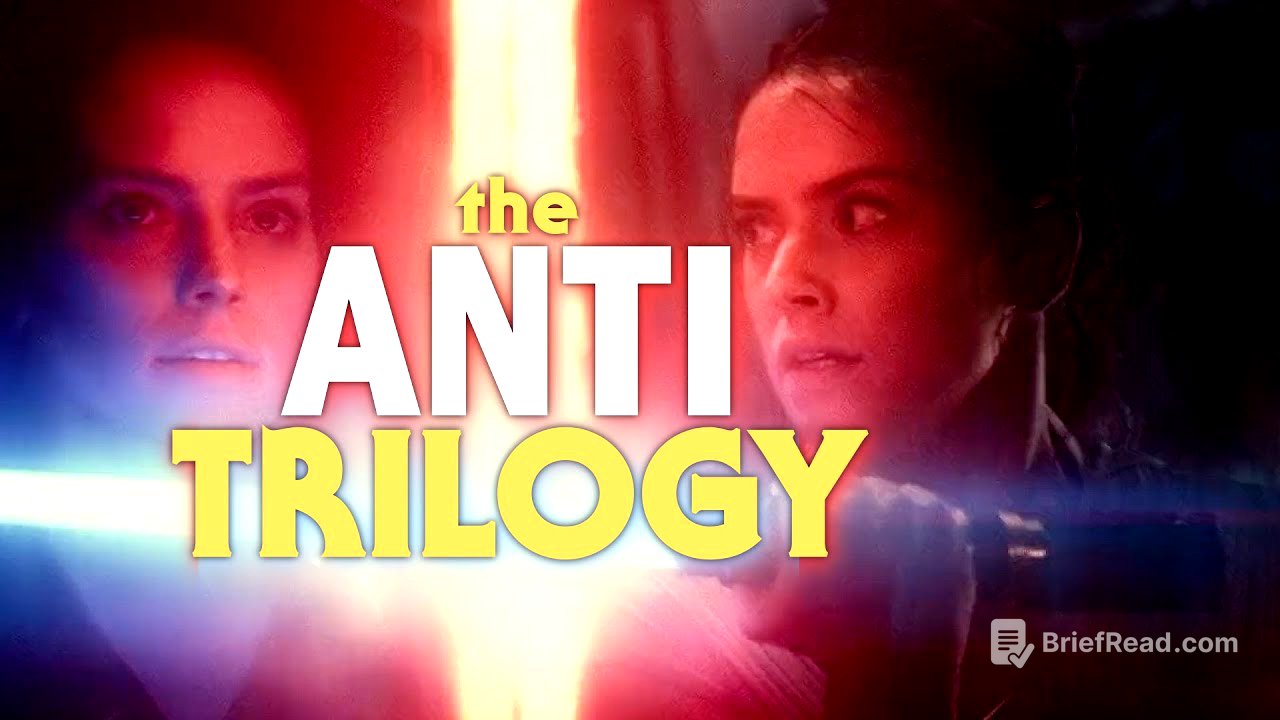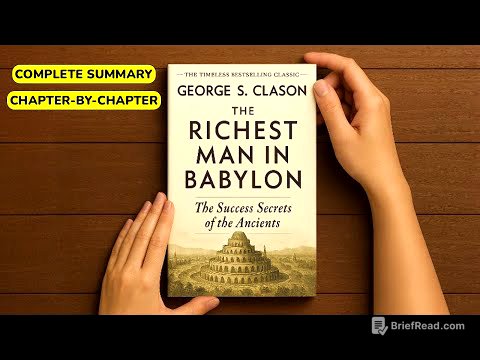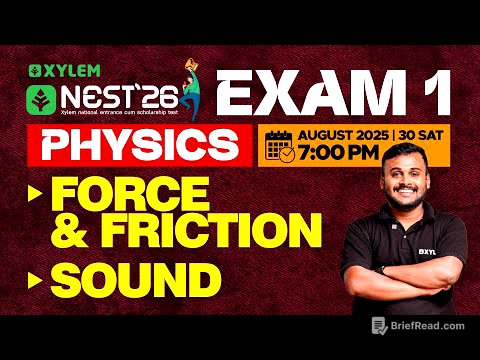TLDR;
The Disney Star Wars sequel trilogy, consisting of "The Force Awakens," "The Last Jedi," and "The Rise of Skywalker," is examined for its underlying theme: each film acts as an antidote to what came before, resulting in a disjointed and ultimately self-defeating saga.
- "The Force Awakens" attempts to correct perceived mistakes of the prequel trilogy by prioritizing nostalgia and practical effects, but it misunderstands the purpose of these elements and undermines established character arcs.
- "The Last Jedi" subverts expectations and rejects the approach of "The Force Awakens," but in doing so, it undoes character development and struggles to create a coherent narrative.
- "The Rise of Skywalker" tries to course-correct again, resulting in a convoluted and narratively empty film that abandons cause and effect in favor of mechanical plot progression.
Intro [0:00]
The video introduces the idea that the Disney Star Wars sequels, despite their apparent incoherence, share a fundamental trait: each film positions itself as an antidote to the preceding Star Wars installments. This creates a trilogy defined by reaction rather than organic storytelling.
The Force Awakens [0:58]
"The Force Awakens" initially appears to be a celebration of the original Star Wars trilogy, bringing back familiar characters, settings, and story beats. However, it deliberately avoids any connection to the prequel trilogy, signaling an intent to "correct" what director J.J. Abrams perceived as George Lucas's mistakes. The film emphasizes practical effects and downplays digital effects, but this approach misunderstands the purpose of these elements in the original films, treating them as mere references rather than integral parts of the story. The movie also undoes Han Solo's character development, turning him into a loser to recapture the feel of the "old" Star Wars. Abrams' desire to replicate the magic of the original trilogy leads to a film that prioritizes nostalgia over meaningful storytelling, ultimately undermining established character arcs and failing to create anything truly new.
The Last Jedi [9:17]
"The Last Jedi" is presented as a direct response to "The Force Awakens," aiming to subvert expectations and bring a new tone to Star Wars. However, this subversion often comes at the expense of established characters and plot points. The film's narrative is built on misleading the audience, and its constant backtracking prevents it from moving forward. The movie rejects the nostalgia of "The Force Awakens" and attempts to move beyond the past, but it does so by tearing down established heroes like Luke Skywalker and haphazardly redoing character arcs. The film is also criticized for being overly preachy and for reducing complex themes to simplistic statements. While "The Last Jedi" aims to be progressive and forward-thinking, it ultimately undermines the saga's core values and fails to create a coherent vision for the future of Star Wars.
Rise of Skywalker [16:44]
"Rise of Skywalker" is portrayed as a course correction to "The Last Jedi," with J.J. Abrams returning to fix Star Wars once again. However, the film is described as a jumbled mess that lacks a coherent plot and clear character motivations. The movie spends excessive time explaining powers and plot points, but it fails to develop its characters or create meaningful relationships. The narrative is driven by arbitrary events and unmotivated actions, and cause and effect are often reversed. The film is criticized for being an "anti-narrative" that prioritizes mechanical plot progression over genuine storytelling. The return of Palpatine and other plot elements are seen as desperate attempts to tie up loose ends and appease fans, but they ultimately contribute to the film's incoherence.
Conclusion [23:06]
The video concludes that the Disney Star Wars sequel trilogy is defined by its reactive nature, with each film attempting to correct the perceived mistakes of its predecessors. This approach results in a disjointed and ultimately self-defeating saga that fails to create anything truly new or meaningful. The filmmakers' desire to impose their own versions of Star Wars ultimately undermines the saga's core values and leaves nothing for future filmmakers to build upon. The trilogy is seen as a missed opportunity to keep the Star Wars universe alive for another generation, and it is best to leave it behind.









